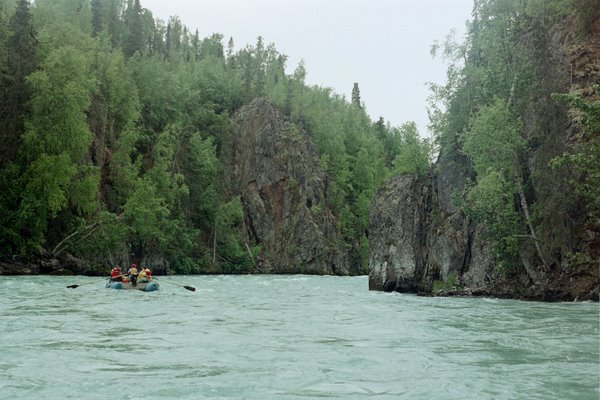There are far greater resources than this blog on how to reduce energy consumption, but let's face it, as a society, we have been gluttons for energy use on many levels, including the size of our homes, the size of our cars, the distances we travel to work, our dependence on the automobile, etc. There are other areas of energy consumption than the usual that people talk about that I would like to address in my essay. But here are a few tips I offer for reducing energy consumption. Don't do so to reduce CO2 emissions, do so to save money, and let your savings also help the environment.
1- If you have to drive, don't drive large trucks and SUV's unless your profession requires it or you have large numbers of people to haul. I commute from Tooele to SLC every day. I try to ride the bus as often as practicable, but when I take my car, I am amazed at how many single occupant trucks and SUV's I see commuting everyday. You see them pull up at the Maverik and fill up, and off they go, driving like lunatics with their pedal to the metal. It's always good to either have a truck or know someone who will let you borrow one. But unless it is essential to your business, people who commute in large trucks and SUV's are wasting money, they are supporting the trade deficit, and by sending funds to countries that harbor and teach radical islam, they help fund terrorism.
2- Passive solar saves more money than you think. Passive solar, for those not familiar, is all about landscaping. It is about understanding where the sun shines at different times of the year, and taking advantage of the sun, or protecting us from the heat it produces depending on the time of year. Air conditioning is a major expense, as is heat. If you don't think the sun produces heat in the winter, just look into the hills. North facing slopes will be covered in snow, and south facing slopes will often be free of it, even during some fairly snowy years. What it means, is that you want to plant deciduous trees on the south part of your house, which, shorn of their leaves in the winter, will allow heat to hit your house and windows. Oaks, maples, and other dense trees on your south side of your yard can cool things down remarkably during the hot summer months, but allow enough sunlight in to make a difference during the winter. As for the north side of your house, plant conifers which will block cold north winds during the winter. A little unrelated gardening tip. Plant a large conifer such as a blue spruce in such as way that it provides shade to fruit trees such as apricots or preaches in the spring, which will cause them to bloom later and less subject to be caught in a frost.
3- Watch less television and read. Television uses up alot more electricity than a lamp with a compact fluorescent. If you have more than one television, make a rule that both shouldn't be on at the same time. Limit TV time for everyone, and I think you'll see not only less energy consumption, but less snackfood consumption as well. Ditto for video games. Lazy bodies build lazy minds. Staying physically and mentally active vrs. parking in front of the cerebral dimmer will save money, energy and ultimately, give you a better quality of life.
4- Buy local and buy simple. Wherever you are, there are those who raise food or make goods for sale. Goods that have less transport, use less energy in general. And if you really want to support local agriculture, buy honey locally. It may cost you a little more, but the honey will generally be better than you can buy in the store, and you will be supporting pollinators that just may be pollinating your own garden. I always recommend farmer's markets and roadside stands whenever possible. And if the neighbor lady is selling homecanned raspberry jam, you generally can't go wrong. Also something to consider, foods seem to be the most nutritious when they've been processed the least. And the processing is an energy consumer. Potatoes use less energy than potato chips. Fresh broccoli from a farmer's market uses less energy than frozen broccoli, unless it is winter time and the fresh stuff at the store comes from Argentina. Don't buy strictly on the basis of energy consumption, but it doesn't hurt to add it into the equation.
This is all for now. Live long, and live responsibly.
Tuesday, July 21, 2009
Subscribe to:
Comments (Atom)


